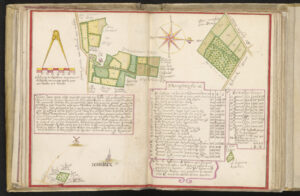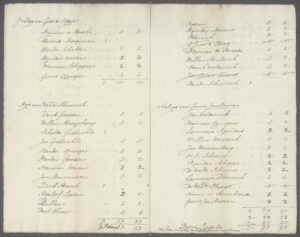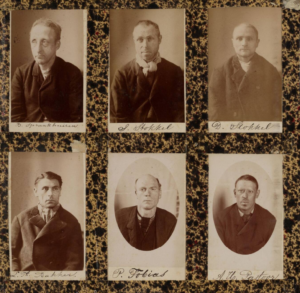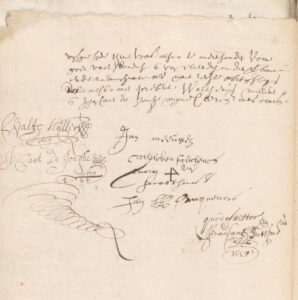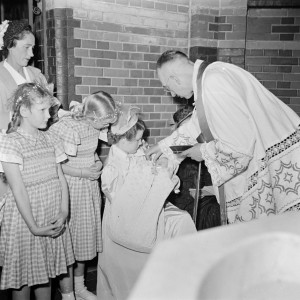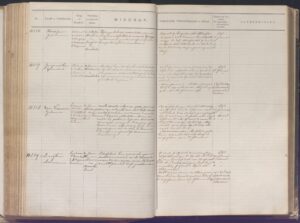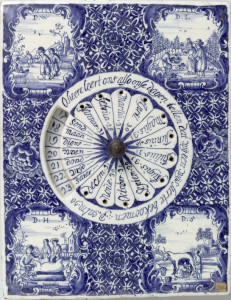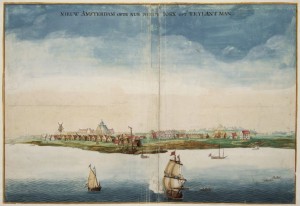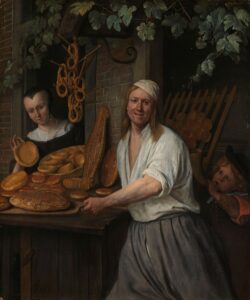Belending means abutting or adjoining. You may come across the term in notarial or court records involving properties. The belendende percelen are the abutting properties, that share a property boundary with the property that is being discussed. Many Dutch land records before the introduction of the Cadaster in 1832 identify the location of properties in terms of its neighbors, sometimes with cardinal directions, but often just in terms of "in between the houses of so-and-so." Sometimes, the … [Read more...]
Dutch term – Inkwartiering
Inkwartiering means billeting, when soldiers were quartered in civilian houses. This could happen during times of occupation. Town records may have lists of houses where soldiers were billeted, including compensation for expenses. Knowing your ancestors had soldiers billeted at their house can be useful in different ways. Apart from being an interesting piece of biographical information, it places your ancestor in a specific time and place, which can help to determine when they died or moved, … [Read more...]
Dutch term – Gedetineerde
A gedetineerde (literally: detained) is a prisoner. You may find them in prison records. From the late 1800s, some prisons took photos of their prisoners. You can find those in the records of the prison, usually kept at the archives in the provincial capital. You can also check the secret register of released prisoners. … [Read more...]
Dutch term – Huwelijkscontract
A huwelijkscontract (literally: marriage contract) is a prenuptial agreement. Sometimes, they are called huwelijkse voorwaarden (conditions of marriage). Whether a couple had a prenuptial agreement depends on their social status. Richer families were more likely to draw up a marriage contract than poorer families. It is also more common to find a marriage contract if one of the spouses is widowed with children, in which case the marriage contract may make provisions for the children. Whether … [Read more...]
Dutch term – Doopboek
A doopboek is a baptismal register. Baptismal records are especially useful in the period before the introduction of the civil registration in 1811 (in most parts of the Netherlands). Baptismal records are often the earliest record created about our ancestors. You may come across the term in finding aids and genealogical indexes, or on the covers of the imaged baptismal records. See the article about baptismal records for more information on how to use and find these records. … [Read more...]
Dutch term – Rol
You may encounter the Dutch word rol (role) in two ways in genealogy: In archival descriptions of records, a rol is a list, for examples of all the cases the court heard that year. In genealogical search forms, rol indicates the role of the person you are searching for in the record. For example, searching for a person with the role bruidegom (groom) will only find results where the search terms apply to someone indexed as a groom. … [Read more...]
Dutch term – Arrest
The Dutch word arrest can have different meanings: a verdict of a higher court the arrest of a person a lien against goods. You will typically come across the term in court records or police records. … [Read more...]
Dutch term – Jaar
Jaar means year. The plural is jaren (years). The singular form jaar is often used in Dutch where English would use the plural. Jaar is more commonly used for a specific number of years and jaren for an unspecified numbers of years, but there are no fixed rules and people do not always follow grammar rules anyway. The easiest to remember is that jaren is always plural and jaar can be either singular or plural. Some common uses: 5 jaar oud - 5 years old In het jaar - in the year … [Read more...]
Dutch term – Nieuw
Nieuw is the Dutch word for "new." You may come across the term in place names in Dutch colonies. For example, New York City was once called Nieuw Amsterdam in the colony of Nieuw Nederland (New Netherland). … [Read more...]
Dutch term – Duivekater
A duivekater was a traditional diamond-shaped bread eaten on religious holidays, mainly Christmas. It was often highly decorated. I have sometimes come across the term in deacons' accounts where poor children were given them as a gift. They can also be seen on various paintings from the 1600s. It is not a common word but a fun one to learn on Christmas day. … [Read more...]
